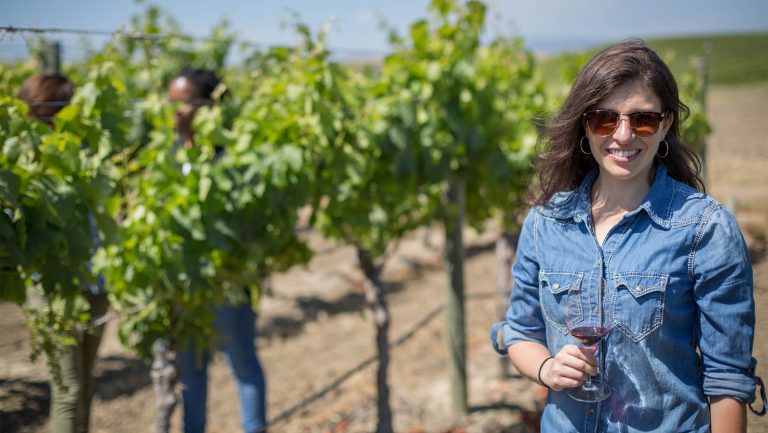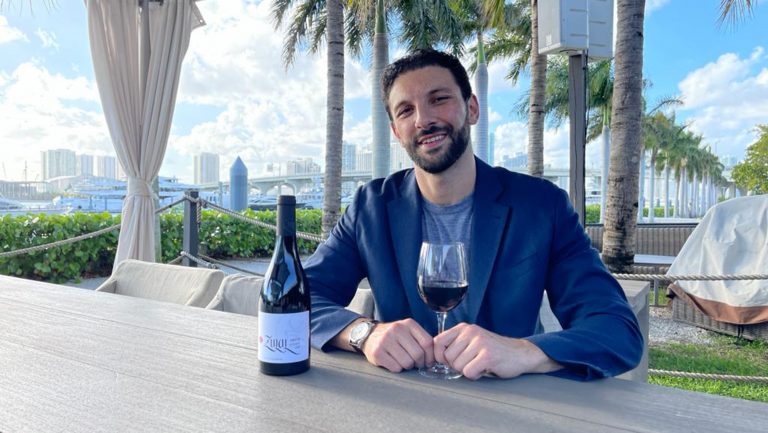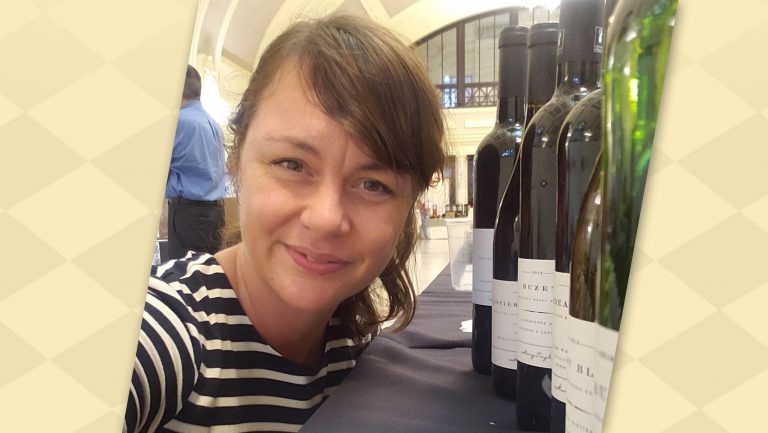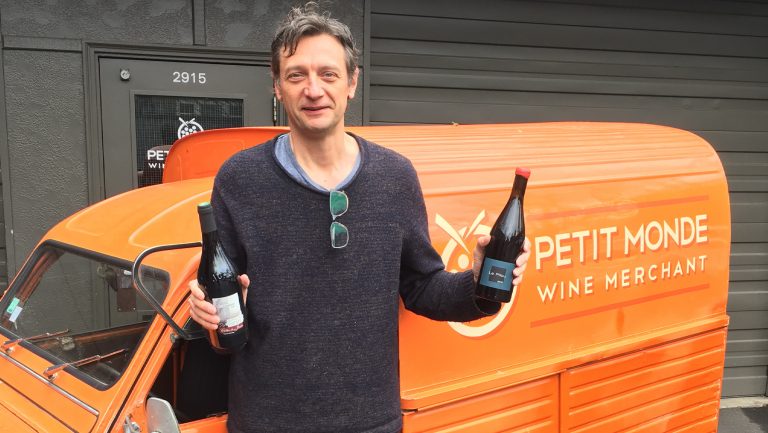In our Importer Intel series, we interview importers about how they broke into the business, built up their portfolios, and navigated challenges along the way.
Like many people in the industry, Mika Bulmash, the founder of New York City-based import business Wine for the World, had an unusual path into the world of wine. Her interest in wine first piqued while studying molecular biology as an undergrad at UC Berkeley. A stone’s throw from Napa, she frequently took weekend gateways to wine country and fell in love with the art-meets-science nature of viticulture and winemaking.
While tempted to transfer to UC Davis to formally study wine, Bulmash ultimately decided to stay the course, determined to follow her goal of finding a career where she felt she could make a positive difference in the world. She started her career working in international health, food security, and agriculture in emerging markets, but she never lost sight of her passion for wine.

Don’t miss the latest drinks industry news and insights. Sign up for our award-winning newsletters and get insider intel, resources, and trends delivered to your inbox every week.
It soon became clear that another option existed, one that would allow her to combine her passion for development with her love of wine. In 2011, Bulmash decided to quit her job and fly to South Africa in order to learn about the country’s wine industry in a post-apartheid context. Her goal was to not only learn how wine was being made, but to understand who was making it—along with the social, economic, and racial dynamics at play. To learn this, Bulmash worked a harvest with a large cooperative winery and a boutique winery, Bosman Family Vineyards, and she conducted interviews with several industry professionals to research Fair Trade and Black Economic Empowerment (BEE). Bulmash took time to reflect on what she had learned, and to figure out how she could use her experience to make a positive impact through wine.
While working in South Africa, Bulmash also met Ntsiki Biyela, South Africa’s first Black woman winemaker, who was working for Stellekaya Wines at the time but dreamed of starting her own brand. To Bulmash, this presented an opportunity to help empower talented South African winemakers of color who often struggled to gain access to capital, while simultaneously working to shift the U.S. market’s perception of South African wine quality. Bulmash connected Biyela with Napa Valley winemaker Helen Keplinger, and the two women formed a winemaking collaboration. The wines, which sold out immediately, became Biyela’s launch pad, giving her the financial boost to eventually start Aslina, which has received critical acclaim.
The collaborative project launched in 2012 and by 2013, Wine for the World officially launched as an importer and distributor of wines that meet Bulmash’s core business philosophy of making a positive impact on communities, the environment, and the world—such as Biyela’s Aslina. SevenFifty Daily spoke with Bulmash about how she built her portfolio and found success with buyers, as well as the future of social responsibility within the industry.
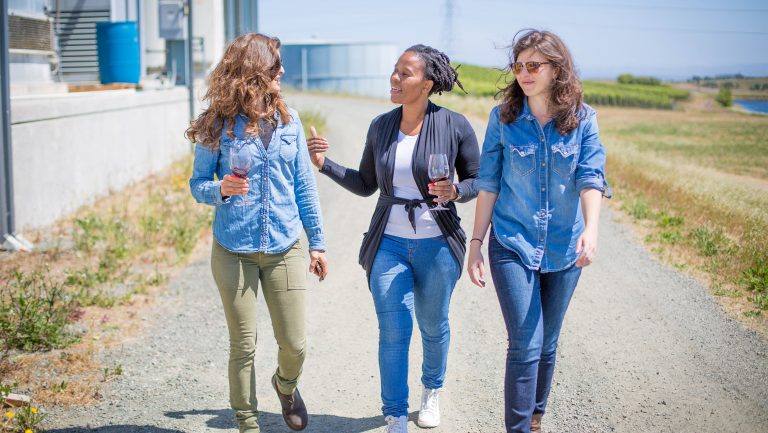
SevenFifty Daily: How did you develop your business philosophy?
Mika Bulmash: At first, we focused exclusively on winemakers and regions that we believed were overlooked by the industry—winemakers of color, women winemakers (particularly from regions where gender parity is less common), and wineries from emerging economies that represented a small portion of U.S. wine sales, where lifting that region in the U.S. market could have a sizeable impact on their communities. We now celebrate wines from all regions that are doing well by doing good, including representing a Native American, LGBTQ winemaker from California (Camins 2 Dreams and Kita); a Fairtrade, organic, and low-carbon-footprint winery from Argentina (Solar del Alma); and a winery that offers therapy and employment for people with mental and physical disabilities in Italy (La Costa), among others. From a winemaking perspective, we look for wines that are authentic to their regions and are without the many additives that I’ve seen snuck into wines. So there is often overlap with minimal intervention wines, though our philosophy is more firmly rooted in impact.
How were you able to develop your portfolio while keeping this philosophy in mind?
We’ve had to be very patient. Our standards are extremely rigorous; in addition to a wine needing to be delicious, interesting, and market-friendly, a winery that we represent must also have a strong social impact, environmental sustainability program, or both. This means that we’ve had to turn away many, many producers—including many with built-in business. Some years we added only one or two producers. But I have long held that what is important is quality over quantity. Our book is limited, and powerful.
How do you find producers to work with?
We approach each region differently. Most of our producers have been found through sourcing trips, others through recommendations. I found one producer, Ktima Brintziki, at a wine conference. It was so loud in the conference that I almost missed it when the producer said she was Greece’s “first green winery”—I thought she said “Greek winery.” As it turns out, she meant that they were carbon neutral, and also focused on ancient Homeric-era varieties. That ended up being a lucky find, but more often than not, it’s a lot of research.
What challenges did you face while building your business?
Finding the right partners for us nationally took some time, and there is no one-size-fits-all approach to the distribution mosaic of the U.S. Fortunately, we have seen quite a bit of growth over the last couple of years, as the national dialogue around diversity and inclusion began to reflect what we have been pushing for all along.
How do buyers respond to your selection?
When I started carrying my wine bag around the streets of New York, few buyers really appreciated excellent South African wine. That has vastly transformed over the last few years. Many buyers now actively seek out great, unique wines from all over the world. And they seem to be super excited to try wines from regions they’ve heard of, but have not had much exposure to—like our premium, traditional-method wines from Brazil. It helps them stand out. Having unique offerings that punch above their weight class in terms of price and quality enables buyers to differentiate from other shops in their neighborhoods. I believe the trend is happening because, like us, more buyers are becoming region-agnostic, and instead are putting more emphasis on the attributes of the wines—like the ethos and winemaking philosophy. So when we bring to our buyers exceptional wines, at excellent value, and with a strong social impact component, it gets them excited and compelled, which in turn translates to their customers.
What strategies have helped you make inroads with buyers?
Transparency, passion, and friendship.
What do you envision as the future of social responsibility within the importer space or the wider wine trade?
I have seen some wonderful efforts underway to create industry-wide dialogues around mindful business practices and labor standards. I’d love to see them implemented—not just by importers and distributors, but also by wine regions’ governing bodies. While there is always room to improve, South Africa is an industry leader in this regard. I personally believe that appellations should stand for more than just quality—they should also include elements of fair labor practices and sustainability, at a minimum. What speaks more to a true sense of place and quality than ensuring standards for the people and environment in which it is grown? I would love to see real, meaningful strides taken with transparency.
What are your plans for the future?
This year, we are launching a portfolio of Italian wines! We have some remarkable wineries we are beginning to work with there. And we are launching a few new producers in South Africa, working with more women winemakers of color, as well as in Greece. We have many more irons in the fire.
This interview has been edited and condensed.

Dispatch
Sign up for our award-winning newsletter
Don’t miss the latest drinks industry news and insights—delivered to your inbox every week.
Caitlin A. Miller is a New York-based wine writer and the current associate editor for SevenFifty Daily. Her work has appeared in Food & Wine, Vinous, and Christie’s International Real Estate Magazine. She holds the WSET Diploma in Wines and was the recipient of the 2020 Vinous Young Wine Writer Fellowship.

